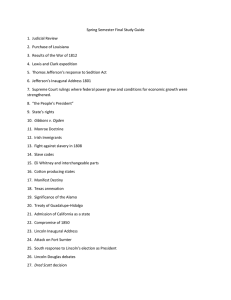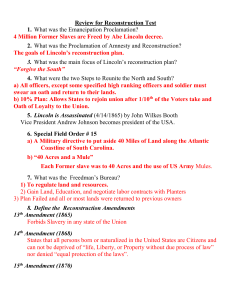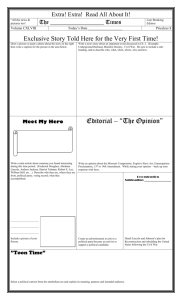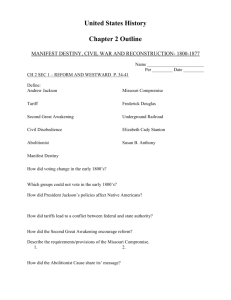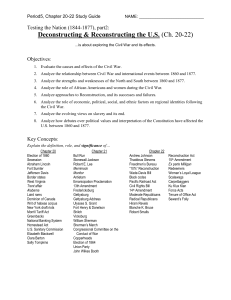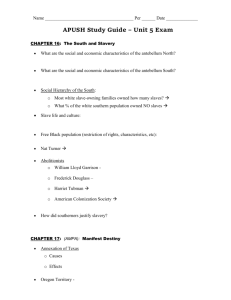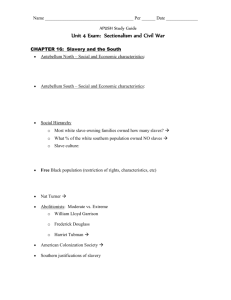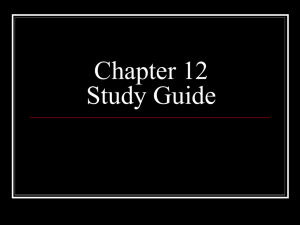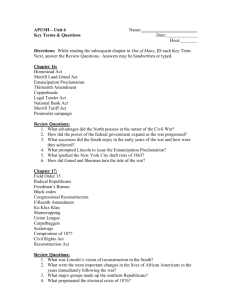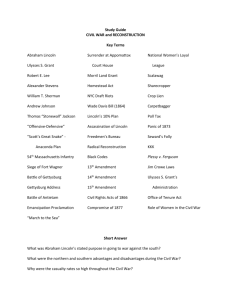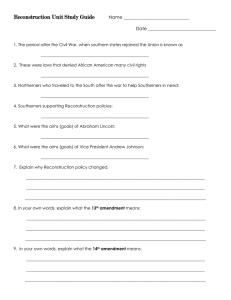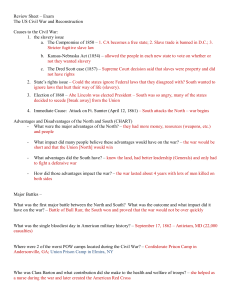Unit 5B
advertisement
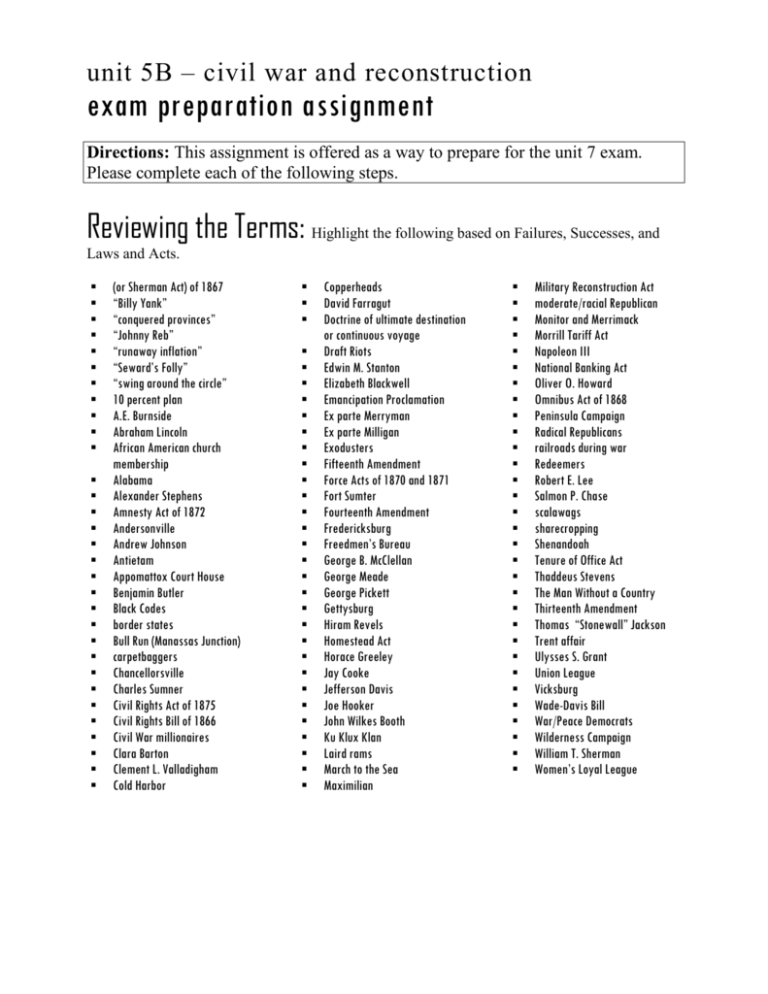
unit 5B – civil war and reconstruction exam preparation assignment Directions: This assignment is offered as a way to prepare for the unit 7 exam. Please complete each of the following steps. Reviewing the Terms: Highlight the following based on Failures, Successes, and Laws and Acts. (or Sherman Act) of 1867 “Billy Yank” “conquered provinces” “Johnny Reb” “runaway inflation” “Seward’s Folly” “swing around the circle” 10 percent plan A.E. Burnside Abraham Lincoln African American church membership Alabama Alexander Stephens Amnesty Act of 1872 Andersonville Andrew Johnson Antietam Appomattox Court House Benjamin Butler Black Codes border states Bull Run (Manassas Junction) carpetbaggers Chancellorsville Charles Sumner Civil Rights Act of 1875 Civil Rights Bill of 1866 Civil War millionaires Clara Barton Clement L. Valladigham Cold Harbor Copperheads David Farragut Doctrine of ultimate destination or continuous voyage Draft Riots Edwin M. Stanton Elizabeth Blackwell Emancipation Proclamation Ex parte Merryman Ex parte Milligan Exodusters Fifteenth Amendment Force Acts of 1870 and 1871 Fort Sumter Fourteenth Amendment Fredericksburg Freedmen’s Bureau George B. McClellan George Meade George Pickett Gettysburg Hiram Revels Homestead Act Horace Greeley Jay Cooke Jefferson Davis Joe Hooker John Wilkes Booth Ku Klux Klan Laird rams March to the Sea Maximilian Military Reconstruction Act moderate/racial Republican Monitor and Merrimack Morrill Tariff Act Napoleon III National Banking Act Oliver O. Howard Omnibus Act of 1868 Peninsula Campaign Radical Republicans railroads during war Redeemers Robert E. Lee Salmon P. Chase scalawags sharecropping Shenandoah Tenure of Office Act Thaddeus Stevens The Man Without a Country Thirteenth Amendment Thomas “Stonewall” Jackson Trent affair Ulysses S. Grant Union League Vicksburg Wade-Davis Bill War/Peace Democrats Wilderness Campaign William T. Sherman Women’s Loyal League Big Ideas 1. Provide evidence in support of each of the following themes. ▪ The nature of the Union and the legal theory of secession ▪ The policy, strategy, and tactics of the Civil War ▪ The Constitution and the practical dilemma of Reconstruction ▪ The struggle for African American civil rights and equality 2. Compare the advantages / disadvantages that existed for the United States and the Confederate States of America at the outset of the Civil War. 3. After Abraham Lincoln and Jefferson Davis who were the 5 most important civilian figures from this era. 4. Rank the 5 most significant governmental activities [include legal decisions, proclamations / declarations, compromises, laws, amendments and tariffs]. 5. Which Reconstruction plan would you have supported; Lincoln’s, Johnson’s, or the Radical Republicans? You should know specific parts of their respective plans. 6. List the 5 defining moments of the Civil War. Provide evidence to justify your selections. How did these events impact the outcome of the war? 7. Compare the myth of Reconstruction [the Lost Cause / the poor Southerners] to reality.
